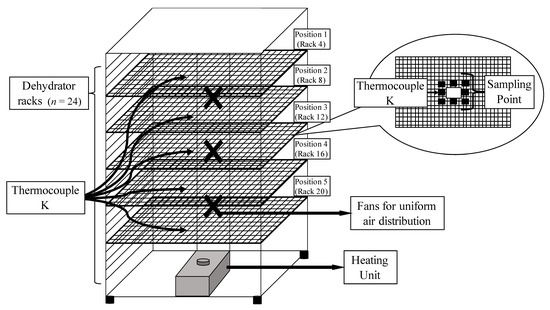Dehydration of plant-based foods at moderate temperatures (≤60 °C) represents a growing interest in minimal processing. An article published in Foods 2021, 10(9), 2162 describes the effect of moderate-temperature (≤60 °C) dehydration of plant-based foods on pathogen inactivation. A model was created to reduce E. coli O157:H7 as a function of product-matrix, aw, and temperature under isothermal conditions. Apple, kale, and tofu were adjusted to aw 0.90, 0.95, or 0.99 and inoculated with an E. coli O157:H7 cocktail, followed by isothermal treatment at 49, 54.5, or 60.0 °C. Minimal microbial reductions, and in the case of tofu, initial growth, were achieved under dynamic drying conditions at 60 °C, indicating that moderate temperature dehydration does not provide an effective thermal inactivation treatment. While the isothermal data suggested that significant E. coli O157:H7 inactivation could be achieved, the model is only appropriately applied when the temperature is between 49 and 60 °C and when the aw is ≥ 0.90. Under dynamic dehydration treatments at 60 °C, these two conditions were never achieved simultaneously. Given the minimal lethality, additional treatments such as an initial acid wash, equipment modification to enhance thermal distribution and penetration, or an increase in the processing temperature may be necessary if a 5 log CFU/g reduction is targeted. @ https://www.mdpi.com/2304-8158/10/9/2162/htm
Survival of Escherichia coli O157:H7 during Moderate Temperature Dehydration of Plant-Based Foods
The effect of moderate-temperature (≤60 °C) dehydration of plant-based foods on pathogen inactivation is unknown. Here, we model the reduction of E. coli O157:H7 as a function of product-matrix, aw, and temperature under isothermal conditions. Apple, kale, and tofu were each adjusted to aw 0.90, 0.95, or 0.99 and inoculated with an E. coli O157:H7 cocktail, followed by isothermal treatment at 49, 54.5, or 60.0 °C. The decimal reduction time, or D-value, is the time required at a given temperature to achieve a 1 log reduction in the target microorganism. Modified Bigelow-type models were developed to determine D-values which varied by product type and aw level, ranging from 3.0–6.7, 19.3–55.3, and 45.9–257.4 min. The relative impact of aw was product dependent and appeared to have a non-linear impact on D-values. The root mean squared errors of the isothermal-based models ranged from 0.75 to 1.54 log CFU/g. Second, we performed dynamic drying experiments. While the isothermal results suggested significant microbial inactivation might be achieved, the dehydrator studies showed that the combination of low product temperature and decreasing aw in the pilot-scale system provided minimal inactivation. Pilot-scale drying at 60 °C only achieved reductions of 3.1 ± 0.8 log in kale and 0.67 ± 0.66 log in apple after 8 h, and 0.69 ± 0.67 log in tofu after 24 h. This illustrates the potential limitations of dehydration at ≤60 °C as a microbial kill step.

